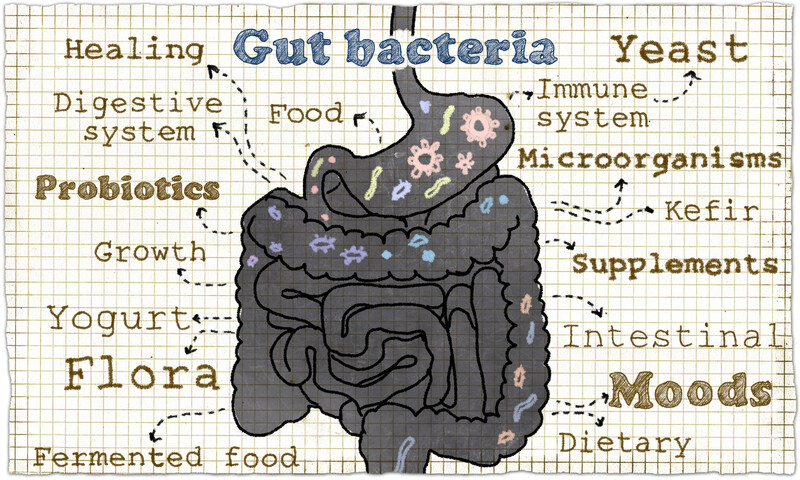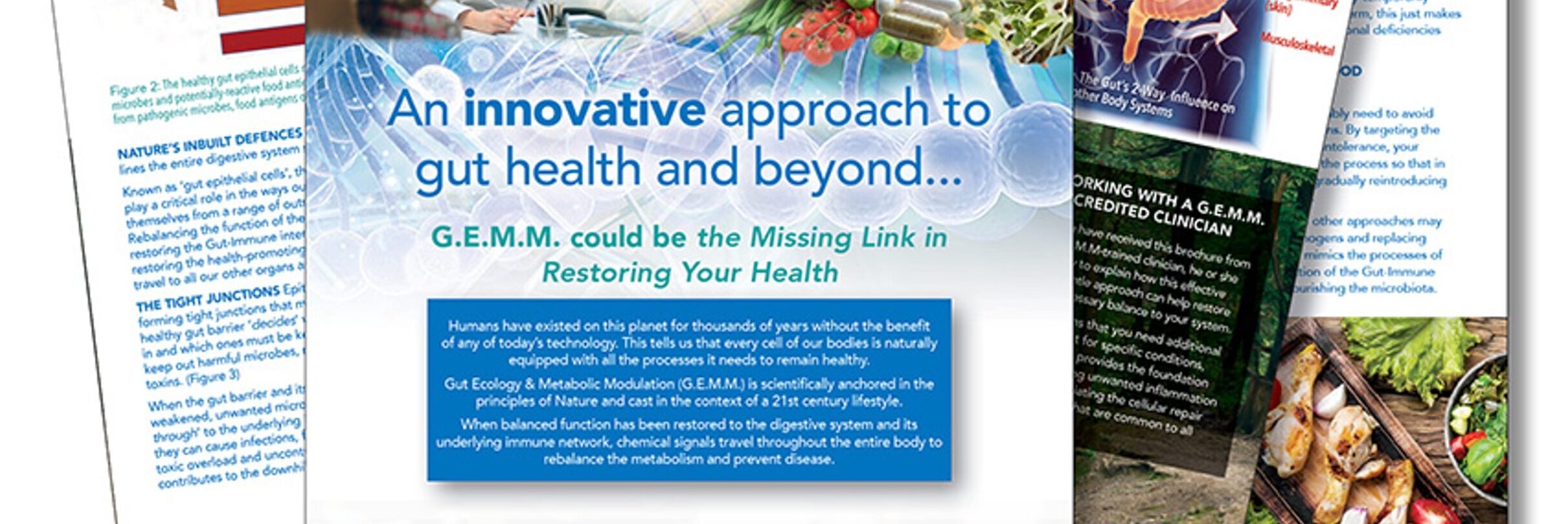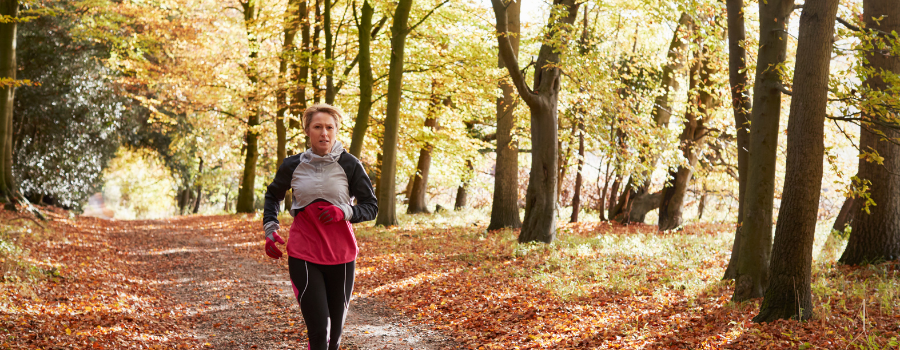This weird infection at my elbow came out of nowhere. Suddenly a big red, angry tennis ball started to grow, was throbbing and looking very angry. My theory is that some bacteria must have gotten under the permanent scab I had from doing forearm-stands in my Yoga-practice.
The next morning, I went to see a doctor to get it looked at. After duly prescribing me antibiotics he said that I better take it as there is no other way for the inflammation to subside as it occurred under the skin.
I began to worry – wondered how on earth this happened, not the usual health-issue I am dealing with. As a naturopath my mind began to search for other healing options. Although antibiotics can be a real blessing in severe infections, its overuse – not just medically – but worldwide in animal-rearing – has prompted bacteria to adapt to a point that many antibiotics are useless. There are super-bugs threatening patients, especially in hospitals – that can’t be contained anymore with antibiotics states Dr.Dennis Dixon, an NIH expert in bacterial and fungal diseases (NIH health news).
Most people, who end up in professions of their calling, had an innate drive and reason to choose that line of work. My tendency toward nature as a cure was only triggered when I recognized that my chronic sinusitis, rhinitis and eczema wasn’t something I had to live with for the rest of my life. Before that my mother brought me to the doctor for regular visits and – like everyone else – I applied and swallowed what was given to me without questions, as long as the symptoms disappeared (for a while).
In this case I had two options. The first option was to give into the fear of a festering inflammation and kill it off with antibiotics as fast as possible. The downside is that it will kill off all my beneficial bacteria as well. The ones that come to my aid in defending my body against any other nasty invaders. Dr. Vance Fowler explains that lab tests would allow for the right choice of antibiotics, but because it may take several days for the results to come back, most doctors start by prescribing a broad-spectrum antibiotics (NIH health news). Hence the good as well as the bad bacteria is killed off, leaving the intestinal flora in a state of dysbiosis.
What kind of influence our intestinal flora has on our state of health is becoming increasingly more evident in Microbiome research. The EU has funded 216 projects to promote metagenomics or the science of microbes. Naturopaths always recognized the importance of poo. It is heartening to know that scientific research has made it evident and medically accepted that the bacteria in our intestines play a major role in the defence of our health, including cancer, cardio-metabolic diseases, allergies and obesity (Hadrich, 2018)
Taking antibiotics causes a severe disturbance of the microbiome in the intestines. Latest research shows, that this is not being reversed by simply taking pro-biotics. Recovery of the intestinal flora was markedly delayed and incomplete for months after antibiotic treatment. The only way to get an almost full recovery of the intestinal flora was achieved via autologous faecal microbiome transplantation (aFMT), in other words a poo-transplant from a healthy donor (Suez, Zmora, Zilberman-Schapira’s, & Mor, 2018). For patients who go through intense antibiotic treatment due to life-threatening illnesses this has shown to improve their chance of recovery.
The Alternative Approach I Chose:
Please read the Disclaimer at the end of this post.
I crushed two raw organic garlic cloves and swallowed it with coconut oil.
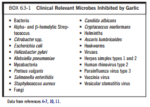
Garlic is a natural antibiotic. Studies demonstrated that garlic inhibits a variety of microbes, including Staphylococcus aureus, Escherichia coli, Helicobacter pylori (causes stomach ulcers) and Candida albicans, – a proliferation of this fungi causes the infamous “thrush”. Pizzorno & Murray list 23 known microbes that respond to the treatment with Allium Sativa or Garlic. (Pizzorno & Murray, 2013, p. 571). Studies also demonstrated that Garlic acts as a pre-biotic to beneficial intestinal bacteria, thus feeding the growth of a healthy intestinal flora without any side-effects (if you exclude having some bad breath as a side-effect).
I drank sachets of dried organic super-berries every three hours.

Anti-oxidant-rich whole foods support the immune-system in a complex and diverse way in bacterial as well as viral infections.
I wrapped my elbow with a castor-oil pack and left it for an hour every three hours.
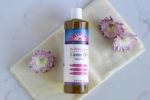
Castor oil has a strong pain-reducing and anti-inflammatory effect. The active ingredient is ricinoleic acid and has shown to relieve pain- and swelling in rheumatoid arthritis (Viera, et al., 2000).
I practiced EFT to ease my mind…
…of all the worries and pre-conceived and conditioned ideas about the power of my own healing-capacity.
This beautiful video shows you how.
EFT, or emotional freedom technique has been clinically proven to be effective in for example anxiety and PTSD (Church, et al., 2017). The practice of EFT helps to reprogram the brain’s long-term memory to recognize a threat, such as fears of spiders, fear of public speaking or ill-health, poses no longer a danger for us. EFT helps to shut down the fight-flight response in the amygdala, which is activated whenever we perceive something as a threat – whether it is “real” or not and thus allows a person to move forward.
Fermented foods empower your intestinal flora
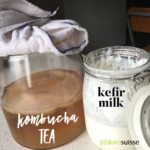
Kombucha-Tea, Kefir-Yoghurt, Sauerkraut, Kimchi, Miso, Natto, Pickles.
Apparently, the bacteria in fermented dairy and vegetables survive the arduous journey through the digestive tract. Fermentation not only contributes towards a beneficial intestinal flora but often increases the vitamin amount and bioavailability of the nutrients.
For example people with milk-sensitivity may be able to consume fermented diary-products, such as yoghurt, cheese or kefir as the milk-protein and lactose has been broken down by the bacteria, making it easier for the body to extract the amino-acids, minerals and vitamins.
Fermented vegetables not only supply digestive enzymes to break down other foods eaten but also boost nutrients and bio-availability of the vegetable itself (Shewell, 2015).
Just to show you what I was dealing with (2 days apart).
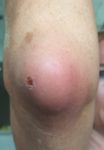

DISCLAIMER:
The words and other content provided in this blog, and in any linked materials, are not intended and should not be construed as medical advice. If the reader or any other person has a medical concern, he or she should consult with an appropriately-licensed physician.
The information on this website is to motivate the reader to do research and make decisions in partnership with their health care providers.
Never disregard professional medical advice or delay in seeking it because of something you have read on this blog or in any linked materials. If you think you may have a medical emergency, call your doctor immediately.
Written by Monika Ramasamy, 30.5.2019
If you like what you read, please share!
Book an Appointment
References
Church, D., Stern, S., Boath, E., Stewart, A., Feinstein, D., & Clond, M. (2017, June 22). Emotional Freedom Techniques to Treat Posttraumatic Stress Disorder in Veterans: Review of the Evidence, Survey of Practitioners, and Proposed Clinical Guidelines. Retrieved May 29, 2019, from The Permanente Journal: https://www.ncbi.nlm.nih.gov/pmc/articles/PMC5499602/
Hadrich, D. (2018, June 18). Microbiome Research Is Becoming the Key to Better Understanding Health and Nutrition. Retrieved May 28, 2019, from PMC. doi: 10.3389/fgene.2018.00212.: https://www.ncbi.nlm.nih.gov/pmc/articles/PMC6009232/
Pizzorno, J. E., & Murray, M. T. (2013). TEXTBOOK OF NATURAL MEDICINE. Missouri: ELSEVIER.
Shewell, L. (2015, October 30). Everything you always wanted to know about fermented foods. Retrieved May 30, 2019, from Science-Based Medicine: https://sciencebasedmedicine.org/everything-you-always-wanted-to-know-about-fermented-foods/#h.lnxbz9
Suez, J., Zmora, N., Zilberman-Schapira’s, G., & Mor, U. (2018, September 16). Post-Antibiotic Gut Mucosal Microbiome Reconstitution Is Impaired by Probiotics and Improved by Autologous FMT. Retrieved May 28, 2019, from ResearchGate: https://www.researchgate.net/publication/327485328_Post-Antibiotic_Gut_Mucosal_Microbiome_Reconstitution_Is_Impaired_by_Probiotics_and_Improved_by_Autologous_FMT?fbclid=IwAR0QWs9mhRP3hzwx8SmGNNwxHbR7-rwPuk3NKP4NV4rXMvvcHFdxZManCIA
Viera, C., Fetzer, S., Sauer, S. K., Evangelista, S., Averbeck, B., Kress, M., . . . Manzini, S. (2000, October 16). Pro- and anti-inflammatory actions of ricinoleic acid:. Retrieved May 28, 2019, from https://www.researchgate.net/profile/Stefano_Evangelista/publication/11811254_Pro-_and_anti-inflammatory_actions_of_ricinoleic_acid_Similarities_and_differences_with_capsaicin/links/5541f2f00cf2aba1e4f122b4.pdf

